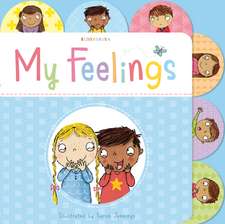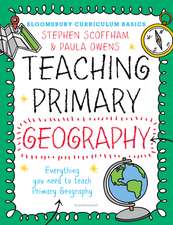Mapping Frontier Research in the Humanities
Editat de Claus Emmeche, David Budtz Pedersen, Professor Frederik Stjernfelten Limba Engleză Hardback – 30 noi 2016
| Toate formatele și edițiile | Preț | Express |
|---|---|---|
| Paperback (1) | 237.75 lei 6-8 săpt. | +87.20 lei 6-12 zile |
| Bloomsbury Publishing – 27 iun 2018 | 237.75 lei 6-8 săpt. | +87.20 lei 6-12 zile |
| Hardback (1) | 715.58 lei 6-8 săpt. | |
| Bloomsbury Publishing – 30 noi 2016 | 715.58 lei 6-8 săpt. |
Preț: 715.58 lei
Preț vechi: 1028.27 lei
-30% Nou
Puncte Express: 1073
Preț estimativ în valută:
136.95€ • 141.89$ • 114.29£
136.95€ • 141.89$ • 114.29£
Carte tipărită la comandă
Livrare economică 21 martie-04 aprilie
Preluare comenzi: 021 569.72.76
Specificații
ISBN-13: 9781472597687
ISBN-10: 1472597680
Pagini: 256
Ilustrații: 11 bw illus
Dimensiuni: 156 x 234 x 16 mm
Greutate: 0.54 kg
Editura: Bloomsbury Publishing
Colecția Bloomsbury Academic
Locul publicării:London, United Kingdom
ISBN-10: 1472597680
Pagini: 256
Ilustrații: 11 bw illus
Dimensiuni: 156 x 234 x 16 mm
Greutate: 0.54 kg
Editura: Bloomsbury Publishing
Colecția Bloomsbury Academic
Locul publicării:London, United Kingdom
Caracteristici
Provides a conceptual map of arts and humanities: how they are similar to the natural and social sciences, how they differ in outlook and approach, and explores the question "Why disciplines?"
Notă biografică
Claus Emmeche is Associate Professor in the Center for the Philosophy of Nature and Science Studies at the Department of Science Education, University of Copenhagen, Denmark.David Budtz Pedersen is Associate Project Manager of Humanomics in the Department of Media, Cognition and Communication's Philosophy Section at the University of Copenhagen, Denmark.Frederik Stjernfelt is Professor of Semiotics, the History of Ideas and the Theory of Science in the Department of Arts and Cultural Studies at the University of Copenhagen, Denmark.
Cuprins
List of figuresList of TablesNotes on ContributorsPreface and AcknowledgementsPart 1 Knowledge Production in the Humanities1. Disciplinary Knowledge Production and Interdisciplinarity, David Budtz Pedersen, Frederik Stjernfelt and Claus Emmeche 2. Research Styles and Extra-Academic Engagement of Humanities Researchers, Lasse Johansson and Jonas Grønvad 3. Research Styles in the Human Sciences, Svend Østergaard and Peter Lau Torst Nielsen4. Criticizing Erroneous Abstractions: the Case of Culturalism, Frederik Stjernfelt Part 2 Advances in Interdisciplinary Humanities5. The Borderology of Interdisciplinarity : a Case of Love and Friendship, Claus Emmeche 6. Bubbles Studies: The Brass Tacks, Vincent Fella Hendricks7. The Humanities Meet the Neurosciences, Magnus Biilmann and Simo Køppe 8. Open Human Science: Transdisciplinary and Transmedial Research, Kristian Moltke Martiny and David Budtz Pedersen Part 3 An Argument for Classical Humanities9. The Culture Debate between Terror Threats, Free Speech and Humanism, Esther Oluffa Pedersen10. From a National to an International Agenda, Uffe Østergaard 11. A Republican Theory of the Humanities, David Budtz Pedersen Index
Recenzii
Mapping Frontier Research in the Humanities tackles a central irony of contemporary academic culture: the humanities, dismissed as marginal or irrelevant, are increasingly central to understanding the role of science and technology in our lives. Its empirical approach to mapping the current state and possible futures of humanistic knowledge may unsettle humanists, which is all to the good.
This compelling book gives a most welcome account of knowledge production in the humanities, showing both their interdisciplinary place amongst the disciplines, as well as their central position in solving societal challenges. It should be compulsory reading for scholars, scientists and policy makers alike.
This compelling book gives a most welcome account of knowledge production in the humanities, showing both their interdisciplinary place amongst the disciplines, as well as their central position in solving societal challenges. It should be compulsory reading for scholars, scientists and policy makers alike.











